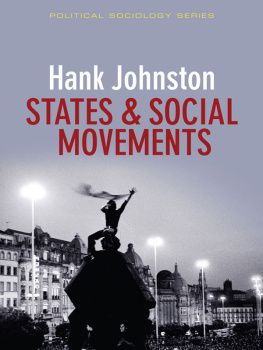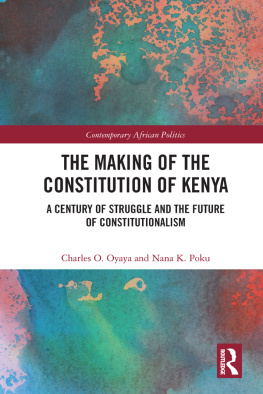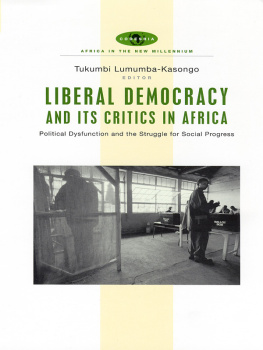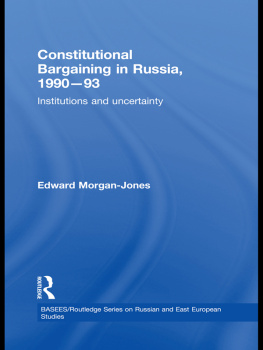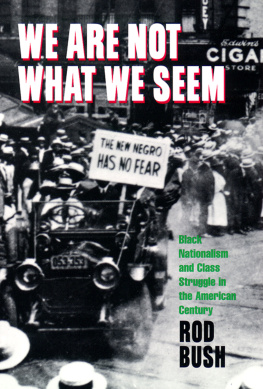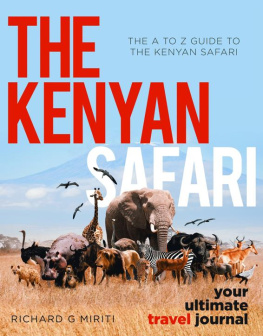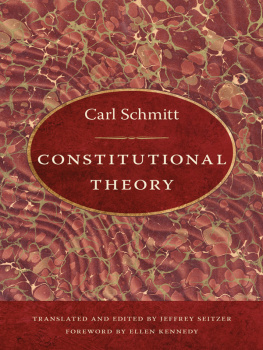This is a critical study on African social movements reflecting on political opportunities, framing and mobilisation structures with respect to the Kenyan Ufungamano Initiative. The book also considers the limits of disruptive power of movements once absorbed into mainstream political processes.
Shauna Mottiar, Director, Centre for Civil Society, University of KwaZulu Natal, South Africa
Matis new book on political protests in recent Kenya is outstanding in several ways. Most theoretical analyses of political protests in Africa, of which there have been many in recent decades, seldom give sufficient accounts of African contexts due to their overreliance on models derived from Europe and elsewhere, not from Africa. Mati, however, roots his analysis in African and especially Kenyan history, carefully taking account of struggles of multiple competing classes, ethnicities, religious groups, generations and gender. Mati shows how an inter-faith-based Ufungamano Initiative, as a uniquely Kenyan movement of movements, played a central long-term role in fostering popular citizen participation in positive constitutional change, in spite of many complexities and internal changes in the movement. I would highly recommend it to readers interested in political protest periods and theories, especially in Africa; it is vital to understanding recent Kenyan history and politics.
David Horton Smith, Research and Emeritus Professor,
Department of Sociology, Boston College,
Chestnut Hill, MA, USA
Political Protest in Contemporary Kenya
This book analyses the emergence, strategies, and outcomes of the struggle to embed democratic governance and constitutional order in Kenya, showcasing both the power and the limits of citizen agency in the struggle to transform a postcolonial African state.
Utilising data from primary interviews, media, and existing literature, this book analyses the emergence, diffusion, operational strategies, and outcomes of Kenyan constitutional reform struggles with a view to highlighting both the power and limits of social movement in transforming a postcolonial African state. It engages intersections of social movement and theories of democratisation to probe the production, operations, and outcomes of the disruptive yet creative power of the movements at the centre of the struggle to transform the Kenyan constitution. The book also appraises the meanings of, and developments after, the promulgation of the 2010 constitution with a view to illuminating the prospects for a transformative democratic political order in Kenya. This book is a useful tool in understanding the struggles specific to Kenya, but also offers insights into other democratic struggles on the African continent and beyond.
This book will be of interest to students and scholars of social movements and political change in Africa in general and Kenya in particular.
Jacob Mwathi Mati is a senior lecturer in sociology at Sol Plaatje University, South Africa and an associate research fellow at the Society, Work & Politics (SWOP) Institute at The University of the Witwatersrand, South Africa.
African Governance
9. African Presidential Republics
Jean Blondel
10. Cultural Capital and Prospects for Democracy in Botswana and Ethiopia
Asafa Jalata
11. Soldiers and the State in Zimbabwe
Godfrey Maringira
12. Islamist Foreign Policy in Sudan
Between Radicalism and the Search for Survival
Mohammed H. Sharfi
13. Dimensions of African Statehood
Everyday Governance and Provision of Public Goods
Randi Solhjell
14. Destabilising Interventions in Somalia
Sovereignty Transformations and Subversions
Debora Valentina Malito
15. Political Protest in Contemporary Kenya
Change and Continuities
Jacob Mwathi Mati
16. Infrastructure Development in Nigeria
A Political and Economic History
Michael Oziegbe Onolememen
17. Post-Election Violence in Africa
The Impact of Judicial Independence
Meshack Simati
18. The Everyday State in Africa
Governance Practices and State Ideas in Ethiopia
Daniel Mulugeta
First published 2020
by Routledge
2 Park Square, Milton Park, Abingdon, Oxon OX14 4RN
and by Routledge
52 Vanderbilt Avenue, New York, NY 10017
Routledge is an imprint of the Taylor & Francis Group, an informa business
2020 Jacob Mwathi Mati
The right of Jacob Mwathi Mati to be identified as author of this work has been asserted by him in accordance with sections 77 and 78 of the Copyright, Designs and Patents Act 1988.
All rights reserved. No part of this book may be reprinted or reproduced or utilised in any form or by any electronic, mechanical, or other means, now known or hereafter invented, including photocopying and recording, or in any information storage or retrieval system, without permission in writing from the publishers.
Trademark notice: Product or corporate names may be trademarks or registered trademarks, and are used only for identification and explanation without intent to infringe.
British Library Cataloguing in Publication Data
A catalogue record for this book is available from the British Library
Library of Congress Cataloging-in-Publication Data
A catalog record has been requested for this book
ISBN: 978-0-367-28067-3 (hbk)
ISBN: 978-0-429-31657-9 (ebk)
To the many unnamed sons and daughters of Kenya who selflessly watered the tree of constitutional change with intellect, sweat, and blood, so that every Kenyan may have a better future.
The ideas presented in this book are the result of years of cumulative reflection on my lived experiences as a Kenyan. In 1990, the Bretton Woods Institutions forced the government of Kenya to cut down on social and welfare expenditure and called for the liberalisation of the economy. This move was also in concert with the suspension of aid by the Paris Club of donors, in order to force political liberalisation. The subsequent impacts were manifold, with the brunt borne by the health and education sectors.
Citizens did not take these events lying down; soon calls for change reverberated in many corners of the country. When I joined Moi University as an undergraduate student in 1993, the militancy of student activism against the ascendancy of neoliberal economic orthodoxy and bad governance had reached its peak. Our struggles as students centred on the immediate effects of cuts to funding and the introduction of hefty fees, but also resonated with the struggles of many other social groups in the country, crystallising in the struggle for constitutional change by disaffected Kenyans. Politically, Kenya was a society at war with itself, as open defiance against the regime of Daniel arap Moi gained momentum. While jargon such as the Structural Adjustments Programmes, liberalisation, and democratisation featured prominently in my lectures, I was also living in the era of the effects of these policies. I began questioning what was happening around me.
Years later, as a postgraduate student at the University of the Witwatersrand, I became increasingly interested in making sense of the vortex I was living in. The result was a dissertation on struggles for Kenyan constitutional reform, the real genesis of the ideas presented in this book. This thesis sought to understand the dynamics in the motivations, drivers, and effects of all these struggles. I owe a great debt to Professor Michelle Williams, my Ph.D dissertation supervisor, who nurtured my ideas, offering insightful guidance and mentorship throughout my research. I received further guidance from Professor Karl Von Holdt as a post-doctoral research fellow at the Society, Work and Politics (SWOP) Institute at the University of the Witwatersrand on refining these ideas through further research, in order to reflect on new developments after the achievement of a new constitution in 2010. I did this round of fieldwork during and immediately after the 2013 general election. A final round of interviews was completed just after the 2017 general elections.



